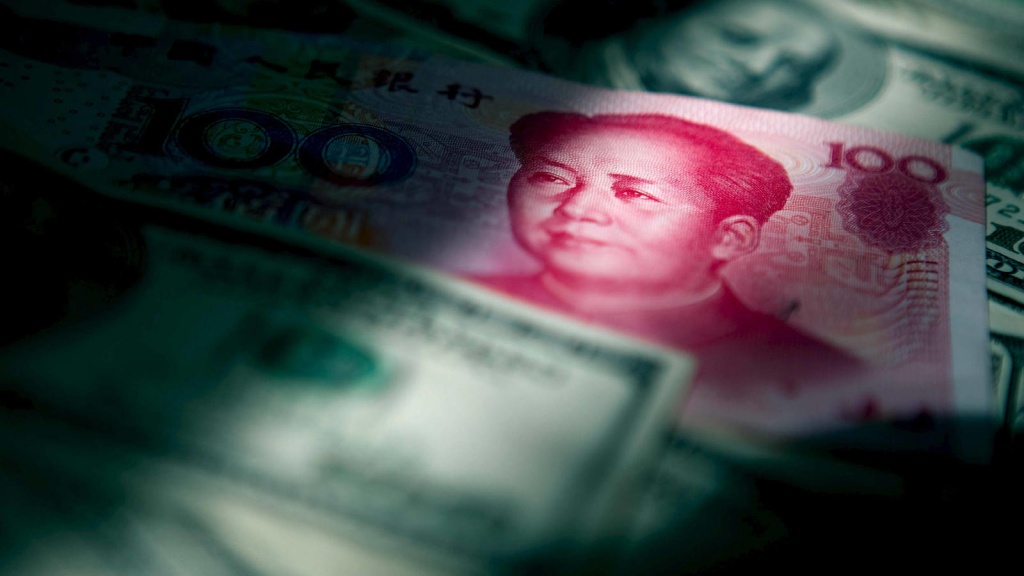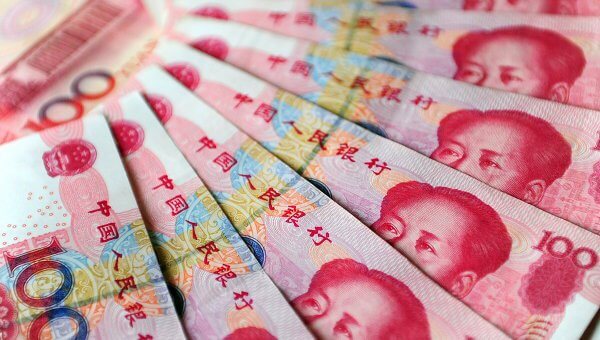Global shares climb as firmer Chinese yuan eases deflation fears
World stocks rose sharply on Monday as China’s central bank fixed the yuan at a much stronger rate and oil cemented recent gains, easing fears of global deflation.
The rally belied a string of poor economic data from Beijing and Tokyo as demand for safe-haven assets waned, yet investors remained on edge due to lingering concerns about growth and the health of the financial sector.
European stocks rose 3 percent .FTEU3, having shed nearly 10 percent over the last fortnight, mirroring a bounce in Asia. Futures pointed to notional gains of 1.6 percent on Wall Street ESc1 but U.S. markets will be closed for a holiday.
Meanwhile, assets that tend to perform well in times of stress lagged. The Japanese yen lost ground against the U.S. dollar, top-rated German bond yields edged away from nine-month lows and gold slipped 2 percent after its strongest week in four years.
“We had a very strong statement from the Chinese authorities signaling they are committed to a stable currency and that’s helped sentiment … safe-haven flows have unwound somewhat,” said RIA Capital Markets strategist Nick Stamenkovic.
In China, spot yuan jumped more than 1 percent to 6.4934 per dollar – its firmest this year – after the People’s Bank of China set its daily midpoint 0.3 percent stronger and the head of the bank was quoted as saying speculators should not be allowed to dominate market sentiment. [CNY/] A stronger yuan reduces the risk that China will export deflation to the world, while worries about consumer price growth have also been helped by bounce back in the oil price.
Brent LCOc1 and U.S. crude futures CLc1 edged up on Monday adding to Friday’s 10 percent surge on speculation that the Organization of the Petroleum Exporting Countries (OPEC) might finally agree to cut output to reduce a world glut.
Euro zone long-term inflation expectations also rebounded from record lows on Monday even as Germany’s Bundesbank cut its forecast for consumer price growth in the bloc’s biggest economy.
DISCONNECT
China’s weak exports and imports in January, down 11.2 percent and 18.8 percent year-on-year respectively, seemed not to disturb markets. The resulting jump in the country’s trade surplus to $63 billion for the month might have helped, as that may offer support to the yuan.
The disconnect between markets and economics was perhaps starkest in Japan, where the Nikkei .N225 jumped more than 7 percent, putting its worst week since the depths of the global financial crisis in 2008 quickly behind it.
This came despite data showing the economy contracted by an annualized 1.4 percent in the last three months of 2015, more than expected.
MSCI’s broadest index of Asia-Pacific shares outside Japan rose 2.3 percent .MIAPJ0000PUS, after losing 10 percent of its value so far this year.
European shares followed in their wake, led by a 4 percent rebound in banking stocks .SX7P on news that the European Central Bank (ECB) is in talks to buy bundles of Italian bad bank loans as part of its asset-purchase program.
Yet some strategists cautioned that Monday’s rebound may prove short-lived, with concern that central banks have little ammunition left to fight off the heady mix of an oil-induced deflationary forces, capital outflows and economic weakness in China, and pressure on the world’s financial sector.
“It’s possible we could see calmer markets this week but we are not out of the woods yet,” Thomas Harr. global head of fixed income and currency research at Danske Bank in Copenhagen.
“For the last couple of weeks we have seen a bit of central bank fatigue – they have cut rates into negative but it isn’t having much of an impact.
Against a basket of currencies .DXY, the dollar was up slightly at 96.433 having been at its lowest in almost four months. Likewise, it edged up to 113.99 yen JPY=, having touched a 15-month trough just under 111.00 last week.
The euro was last down 0.6 percent at $1.1184 EUR=, having slipped from a 3-1/2 month peak of $1.1377.
Copyright: Reuters


